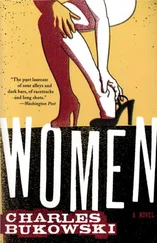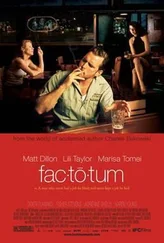It was the beginning of his adulthood.
Maybe it had to do with his own slide, entering the region between early and mid-thirties, still young enough to remember all the emotions and joys associated with teen delinquency, yet old enough now to be a little worried by the bumping bass from the car next to you. You reach a point where you look into a mirror and can't help but focus on the shining suggestions of scalp, for they are unavoidable, just beyond the front of your hairline, as if they were spots of lawn picked clean by birds. You find these hard, horizontal creases, like a series of ladder steps, down the middle of your forehead. You stare at yourself and see once-focused facial features suffering the effects of gravity, your eyes and mouth less prominent than they should be, what they once were; what, gradually, is becoming softer, a pie of a face, a face not the one you grew up with, nor the face to which you have long grown accustomed. You reach a certain age and it becomes convenient to blame the dry cleaners for the problems you have buttoning your slacks; it becomes consoling to tell yourself that, so long as you suck in your gut, you still have your ballplayer's physique. You wake up around the crack of dawn and slip into your sweats and running sneakers, and a mile or two later you are slowing to a trot, walking, placing your hands on the gray fabric at your thighs. Your knees get stiff in bad weather. You cannot sleep in the wrong position without aggravating your back. Cannot make it through the night without taking a piss. Certainly, you cannot comprehend death, the world going on, the trees and cars and life continuing onward, absent the presence of your physical and mental self. You cannot possibly fathom an end to your observations about the status of your physical decline, a final finality. Such things are beyond you, as they are beyond anyone; and yet the evidence permeates your days, unavoidably present, oozing from the southwestern décor of a master bathroom, its sandalwood and Iroquois shades, its tastefully papered walls, miniature designs of sea horses and bubble-breathing goldfish.
You stare straight into the confines of your own personal cage, it's understandable if you take consolation in a rich, fatty meal; if getting your wife into the sack constitutes a personal victory; if pounding into her until her body locks and unlocks against her will brings within you a satisfaction that is more sadistic than generous. You hit a certain point in your life, fact is, you clemently rejoice in your son's truancy, you actually want your child out on the town, disobeying orders, breaking his curfew, chugging a few beers — although Newell was too young for chugging, wasn't he? Well, then, out tasting his first beer. Chasing a good time. Trying to eat the world.
Lincoln's son was bigger than the world. The world could go to hell in comparison to his Newbie.
The ceiling fan continued its efficient hum, muting the faraway sounds that drifted through the south window — a time-activated sprinkler system in rotation, the neighbor's dog barking at an imagined intruder. Lincoln jostled his member, dislodging the last squirts, then the last drops, of a piss so satisfying as to be almost celebratory, an end-zone dance to his coital touchdown.
He lifted the cover off of the toilet's basin. His mind was happily unfocused, and he did not care that the Mexicans had never fixed the toilet like they'd promised. He jiggled the rod.
It took three steps to get to the sink. With tired yet practiced motions, he removed his contact lenses, soaked them in saline, and shut them inside their little plastic case. As soon as the lid closed, he remembered the liquid soap — usually you want to wash your hands after they're on your dick, but before they head into the eyes.
He relathered.
Welcome to your future, old man.
If death was beyond comprehension, then having a child had to be one of the more powerful ways a man came to terms with his mortality. Could there be anything more alarming than recognition of your own mannerisms in your son's movements, seeing the physical characteristics you cherished in your wife manifest in him? The seed of the father plants the stalk; every father dreams that the stalk will not linger in his shade or shadow, but will grow bigger and stronger, blooming, his roots extending into previously uncharted territory. The dream is a child who would carry on your dreams and ideals, personalizing them, meeting those new dreams and finding his own successes and happiness: at once validating and perpetuating every bit of love and attention that you had devoted. How easy it was for Lincoln to look back now and appreciate something as simple as his own father showing him the secrets of oiling and breaking in a baseball mitt— first soak the palm and the web with oil, get it good. Okay, now put the tennis ball in there. Squeeze tight, attaboy, you're getting it. And where's the phone book? Behind their tattered shack in Las Cruces, Lincoln's dad had taught him how to get in front of a grounder so that if the ball took a bad bounce, his body could absorb the hit. Lincoln's father also used to rear back and huck the ball up into the starry New Mexico evening, passing hours on end with his only son; handing down secrets like how to judge a ball in the soup, and how to recover when you've lost its flight, and — once young Lincoln showed he knew his fundamentals and was ready — how to look nonchalant as you made a basket catch.
There existed few words to describe what it felt like to watch his own son be just as entertained by the fancy-Dan techniques as young Lincoln had been. For more than half an hour Newell had been into it. Then he'd become antsy, twitching back and forth like a pinwheel in a spring breeze. Where each mistake that Lincoln had made as a child had spurred him to practice harder, his son was physically incapable of holding still for the time it took to learn how to properly hold his mitt: he tried but the ball bounced off the palm of his glove; he settled underneath the pop fly and got scared, at the last second ducking out of harm's way; he got frustrated and threw his glove; he put his mitt on his head and sniggered at his cleverness. During two seasons of Biddy Ball and then another season of Little League, Left Out had been the boy's unofficial position, and he had not seemed to mind, daydreaming his way through the three innings guaranteed to each player, then spending the rest of the contest at the far end of the dugout, suspiciously near the cooler of postgame soda. Each game, in his single at bat, Newell consistently unleashed lumbering, vicious cuts, and although Lincoln talked to him about being under control, waiting for the right pitch, and the victory of making contact, his words never registered for longer than the ride home. And that was fine too. Lincoln wasn't going to be one of those pathetic bastards reliving his own faded and derailed athletic glories. No, he was just going to be there, rooting through every one of those three required innings of play; supportive when a can of corn that any Nancy could have flagged shot over his son's head, then rolled into the outfield of the game on the next field; patient through every epic swing that sent his kid staggering out of the batter's box. Be it Little League or the class talent show at the end of the year, winning and losing were less important than doing your best and knowing your dad was there cheering you on. And when a departmental powwow had made him fifteen minutes late for the boy's second-grade play, had anything been so awful as Newell scanning the crowd and becoming so upset he could not go onstage? Had anything been so comforting? And when the next class play came around, who had showed up thirty minutes early, fit himself into a tiny blue chair in the back of the room, and sat through a lesson in elementary division? Who'd run onstage when the boy had slipped during his scene and bawled anew?
Читать дальше











